| | | | | | | Presented By Babbel | | | | Axios World | | By Dave Lawler · Jan 05, 2023 | | Welcome back to Axios World. - We're back after a lovely holiday break. Hope your New Year is off to a good start.
- Tonight's edition (1,997 words, 7½ minutes) starts in Venezuela, with stops in Ukraine, Jerusalem, Lugano and more.
New arrival? Subscribe. | | | | | | 1 big thing: Venezuela's opposition in limbo after ditching Guaidó | 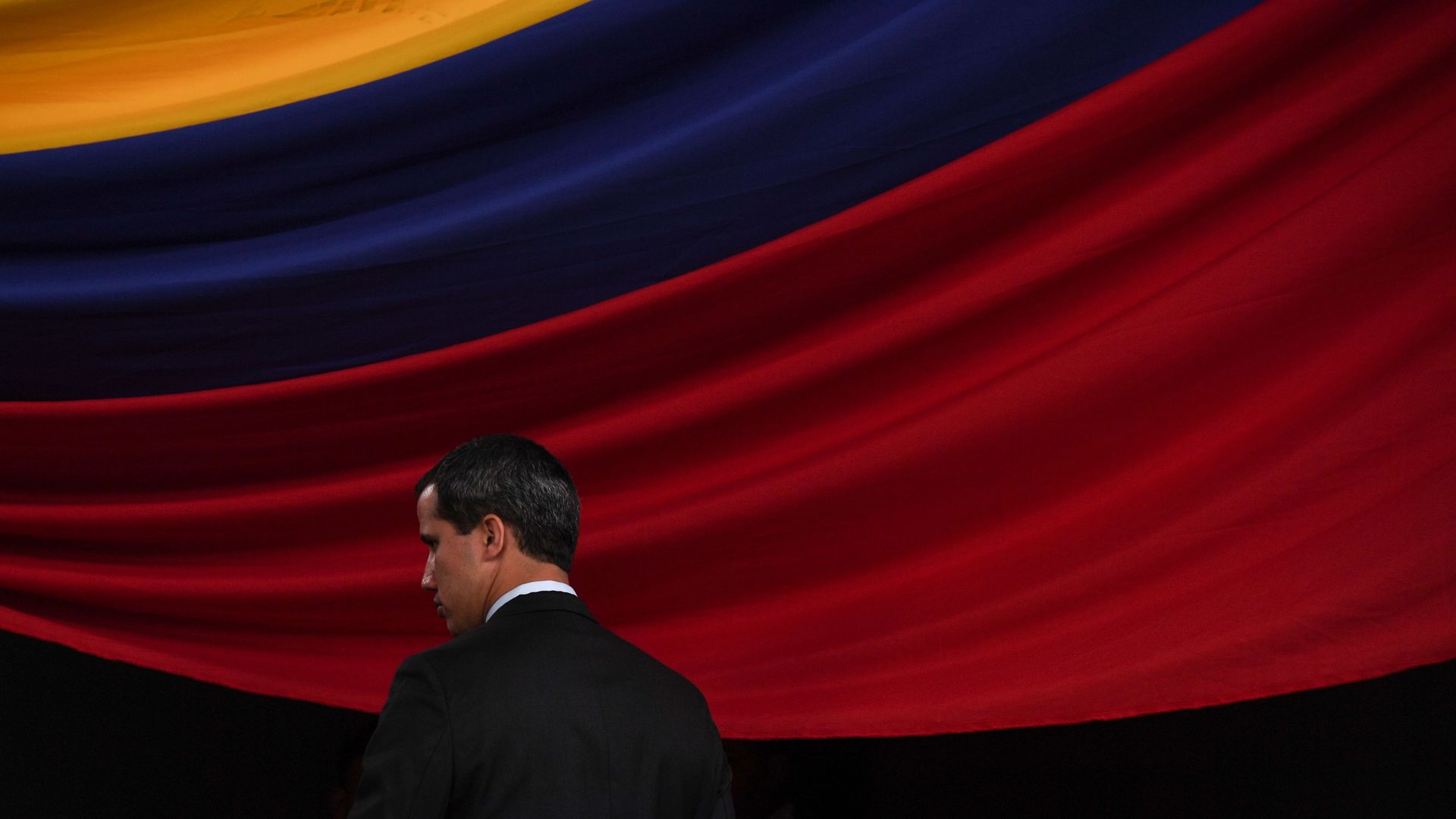 | | | Juan Guaidó in 2020. Photo: Yuri Cortez/AFP via Getty Images | | | | Four years after dozens of countries backed Juan Guaidó as Venezuela's legitimate president, the Venezuelan opposition has dissolved his "interim government," replaced him as National Assembly leader, and entered a new era of uncertainty. Why it matters: Guaidó never truly held the levers of power in Caracas, and his support with the public and within the fractured opposition had been slipping for years. But U.S. policy and, crucially, the opposition's claim to billions in Venezuelan assets overseas, were still based around the premise of Guaidó's legitimacy. Flashback: Guaidó's audacious attempt to topple Nicolás Maduro, enthusiastically backed by the Trump administration, once captured the attention of the world and the hopes of millions of Venezuelans. - Over time it gave way to frustration and opposition infighting. Several governments in Latin America and Europe dropped their recognition of Guaidó, though not the U.S.
- Even after Guaidó lost public confidence and the support of most major opposition factions, he was seemingly immovable because international recognition and control of some government assets were tied to his "interim presidency," says Phil Gunson, an International Crisis Group analyst in Caracas.
- Finally, though, opposition lawmakers decided to "chop off the afflicted limb" and accept the "painful" consequences, Gunson tells Axios. It remains to be seen whether the move will have any bearing on court cases regarding Venezuelan assets — gold reserves held in the U.K., control of oil refiner Citgo — which hinge on the claim that Maduro is illegitimate.
What they're saying: Freddy Guevara, a prominent opposition politician and Guaidó ally, called the decision to dissolve the interim government "political suicide." He told Axios' Oriana Gonzalez it would weaken the opposition's international standing and its relationship with the U.S., and potentially allow Maduro to regain billions in assets. - "I think we just shot ourselves in the foot," Guevara said. "I think we are weakened now, and I think this is one of those things we see in politics where one side that is more worried about solving its internal issues forgets about the real problem at hand."
- "We now see that the members of the Maduro regime are celebrating," he added, noting that it's a bad sign if "you're in the middle of a confrontation and your opponent is happy."
The other side: The three main rival opposition parties in the assembly said in a statement that the step was necessary to "build a more solid and realistic coalition in the democratic struggle." - Opposition parties are expected to hold primaries this spring ahead of a possible presidential election in 2024. They are unlikely to coalesce around a single opposition leader before then.
|     | | | | | | Part II: How the U.S. responded | 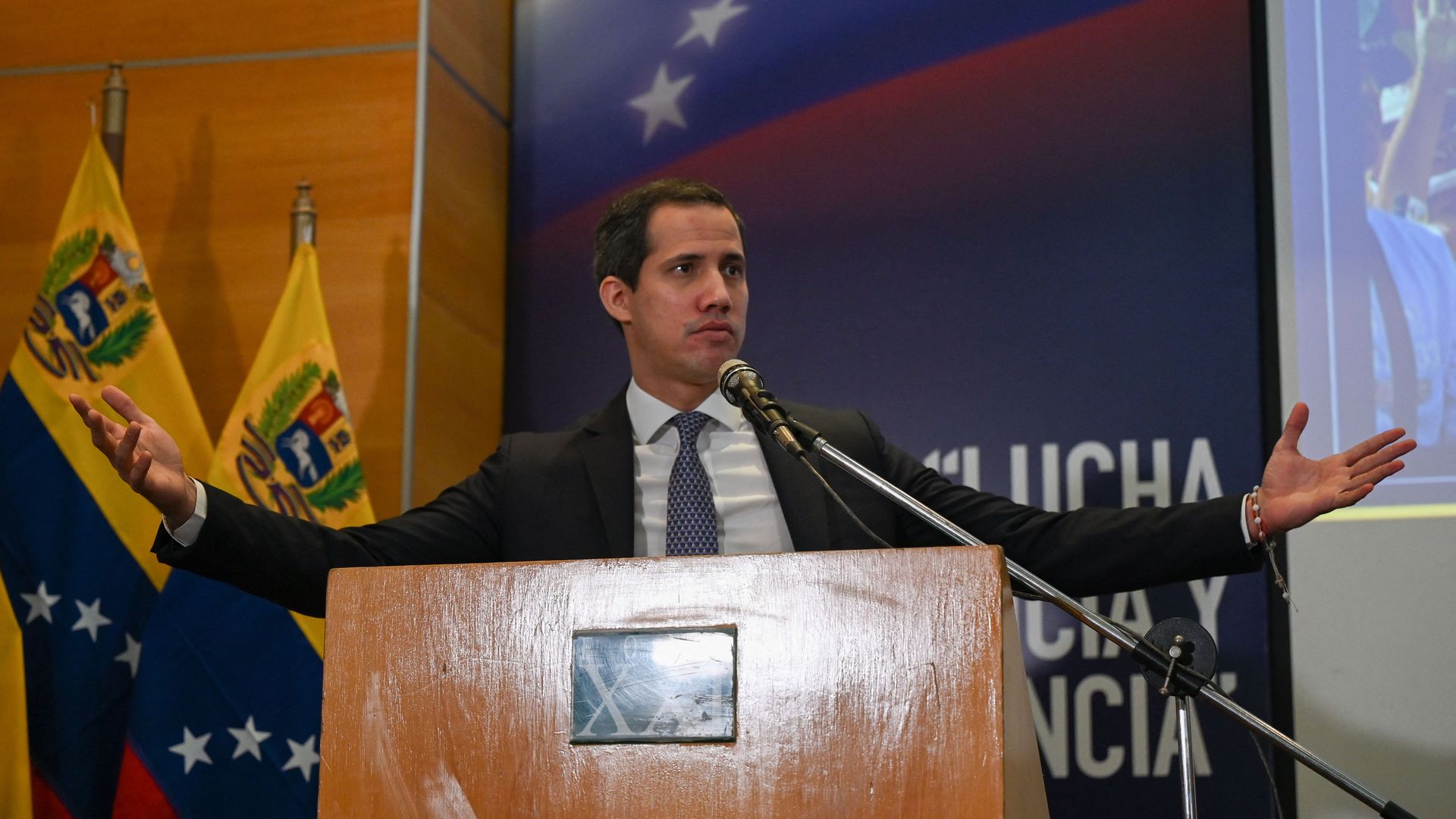 | | | Juan Guaidó holds a press conference in Caracas. Photo: Federico Parra/AFP via Getty Images | | | | The U.S. is following the lead of the opposition-run National Assembly and will no longer recognize Guiadó — or anyone else for the time being — as Venezuela's legitimate president, a senior U.S. State Department official confirmed to Axios yesterday. - The U.S. continues to recognize the assembly, which was elected in 2015, as Venezuela's "only remaining democratically elected institution," the official said.
- The assembly — which convenes over Zoom because many of its members are in exile — voted 72-29 on Friday to pull the plug on the "interim presidency." Today, it selected new leaders to replace Guaidó and create a five-person commission to manage Venezuela's overseas assets.
What to watch: Opposition representatives have recently taken part in dialogue with Maduro's government with the encouragement of the Biden administration, which is dangling sanctions relief in exchange for steps toward restoring democracy. - Maduro said this week that he is "totally ready to take steps towards a process of normalization" with the U.S.
- But the strongman has thus far "shown no willingness at any point to grant the kinds of concessions that might lead to free and fair elections," Gunson says.
|     | | | | | | 3. Ukraine gets much-needed armored vehicles |  | | | Christmas Day near the frontlines in Donetsk. Photo: Pierre Crom/Getty Images | | | | President Biden and German Chancellor Olaf Scholz announced today that they'd send armored fighting vehicles to Ukraine, following a similar announcement yesterday from French President Emmanuel Macron. Why it matters: As the war has carried on, Ukraine's Western backers have slowly crossed new thresholds by agreeing to send heavy artillery, longer-range rockets, advanced air defense systems, and now more lethal armored vehicles, which Kyiv has been requesting for months to aid its counterattacks. Driving the news: Macron had previously opposed sending tanks but announced that France would supply its AMX-10RC, which he called "light battle tanks" (the definition of "tank" is fuzzy). - Then Biden and Scholz made a joint announcement, following a phone call, that the U.S. would provide Bradley infantry fighting vehicles while Germany would send Marders (neither are tanks).
Between the lines: Macron's announcement put Germany under pressure because Berlin had justified its reluctance to send Leopard tanks — which sit near the top of Kyiv's wishlist — partially on the grounds that no one else had provided Western-made tanks. - The armored vehicles promised this week should give Ukraine new capabilities ahead of counteroffensives expected this spring, but Kyiv is likely to keep up the pressure for German Leopards and American Abrams tanks.
State of play: Russian President Vladimir Putin claimed today that Russian forces would observe a unilateral 36-hour ceasefire beginning Friday to mark Orthodox Christmas. Ukrainian officials dismissed the announcement. - The heaviest fighting at present is around the eastern city of Bakhmut. Russian fighters — many of them Wagner Group mercenaries — are attempting to capture the city after six months of brutal combat, though Ukrainian President Volodymyr Zelensky claimed today that the Russians had been expelled from Bakhmut's outskirts.
- A senior U.S. official briefed reporters on Wednesday that the outcome of the battle was in the balance, but it was "curious" that the Wagner Group was willing to spill so much "Russian blood" for Bakhmut, which had a prewar population of around 80,000 but is now largely destroyed.
Meanwhile, Russia now says 89 of its soldiers were killed in a Ukrainian strike on New Year's Day in occupied Donetsk, up from the 63 announced previously. Ukraine puts the death toll at around 400. Neither number can be independently verified, but it appears to be the deadliest single strike of the war. - Russia's Defense Ministry claimed unauthorized cellphone use by its soldiers allowed the Ukrainians to target the building housing them with a U.S.-provided HIMARS system.
|     | | | | | | A message from Babbel | | Don't just see the world — stop and say "Olá" or "Hola" | | |  | | | | 'Tis the season to learn Spanish or Portuguese with Babbel, a platform built by more than 150 expert linguists. With daily 10-minute lessons, including videos and live classes with top teachers, you'll be able to hold actual conversations in as little as 3 weeks. Get up to 55% off for a limited time. | | | | | | Bonus: Where in the world? | 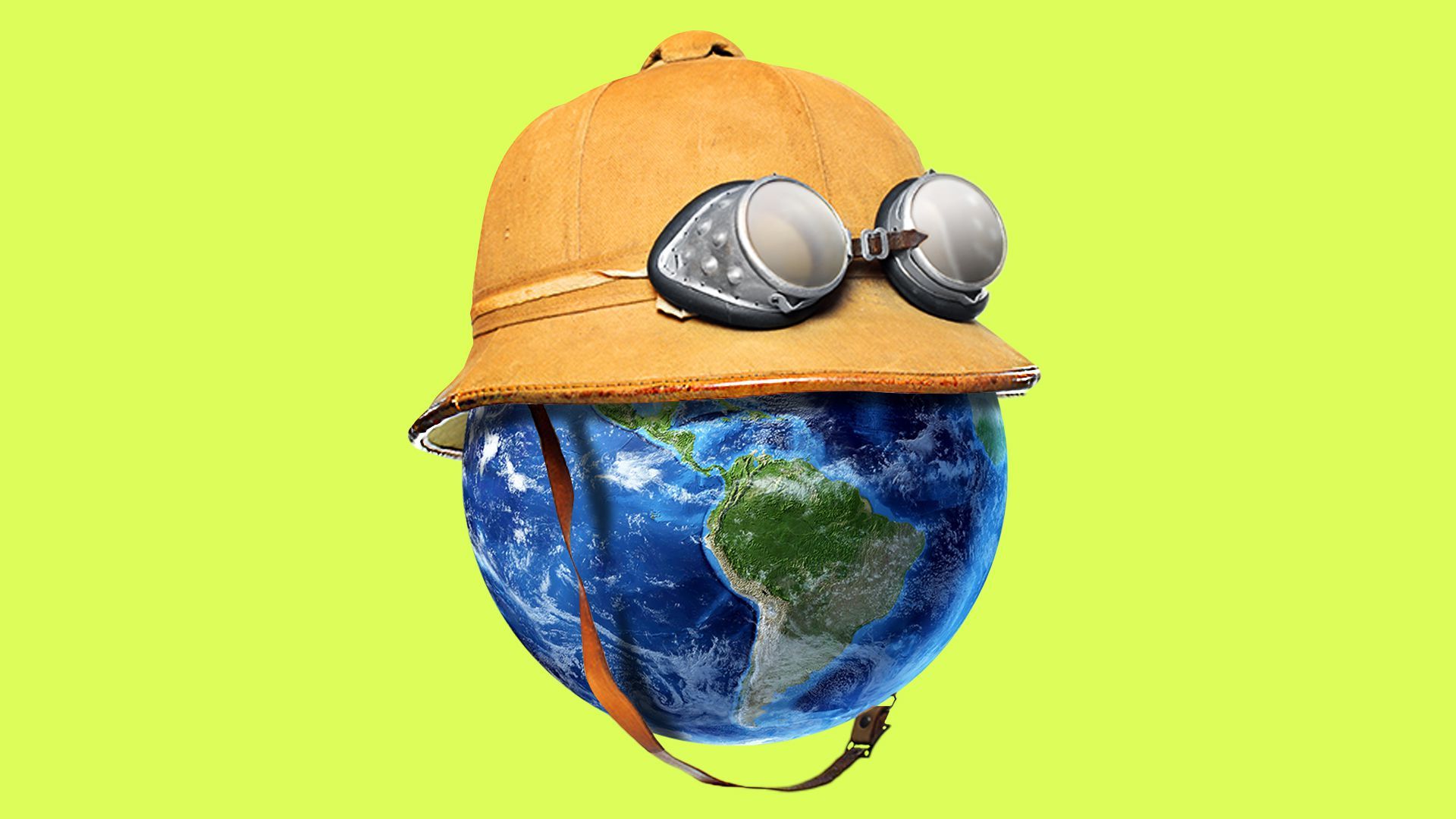 | | | Illustration: Natalie Peeples/Axios | | | | Today's theme is big winners from 2022. They might get a bit harder as you go. - This country won the World Cup.
- This former president won a return to power in Brazil.
- This Puerto Rican rapper was Spotify's most-streamed artist for the third year in a row.
- This English-language remake of the French film "La Famille Bélier" won the Best Picture Oscar.
- She became Italy's first female prime minister.
- This country won the most golds and total medals at the 2022 Winter Olympics.
- This former VP was elected president in Kenya.
- This French writer won the Nobel Prize for literature.
- This country was the happiest in the world, according to an annual UN report.
- This small country in the Americas, one of the world's newest oil producers, recorded the highest estimated GDP growth rate in the world.
Scroll to the bottom for answers. |     | | | | | | 4. Global news roundup |  | | | Lula arrives for his inauguration. Photo: Maira Erlich/Bloomberg via Getty Images | | | | 1. Israel's new hard-right government is off to a contentious start. Driving the news: At an emergency UN Security Council meeting today, the U.S. and other countries criticized a visit by national security minister Itamar Ben-Gvir to the Al-Aqsa Mosque compound in Jerusalem, also known as the Temple Mount. - Previous incidents at the holy site for both Muslims and Jews have sparked several rounds of violence between Israelis and Palestinians. A rocket was launched from Gaza after the visit by Ben-Gvir, a formerly fringe right-wing extremist.
- U.S. officials are concerned that the new government's policies on the occupied West Bank and other issues could lead to escalation and harm Israeli democracy, Axios' Barak Ravid reports.
- What to watch: National security adviser Jake Sullivan will travel to Israel this month for talks with the new government.
2. An enormous wave of COVID infections is straining China's medical facilities. While infections may have peaked in cities like Beijing, rural areas are starting to see a surge in infections. - What they're saying: "As Omicron becomes much less fatal, the call for normal life and work becomes louder, and the Chinese government has heard these calls," Chinese embassy spokesperson Liu Pengyu briefed reporters today, seeming to concede that protests played some role in the decision to abandon "Covid zero."
- Liu rejected accusations that Beijing is not being transparent about the outbreak. The official death toll since Dec. 1 is only 25, though internal estimates as of Dec. 20 were that around 250 million people had been infected, per the FT.
3. Brazilian President Luiz Inácio Lula da Silva has moved to tighten gun laws and restore Amazon protections since being inaugurated on Sunday. Former President Jair Bolsonaro skipped the ceremony and has popped up in Florida. 4. The arrest today of Ovidio Guzmán, son of drug kingpin "El Chapo" Guzmán, sparked violent clashes in the Mexican city of Culiacán. |     | | | | | | 5. Norway's rich are moving to Switzerland | 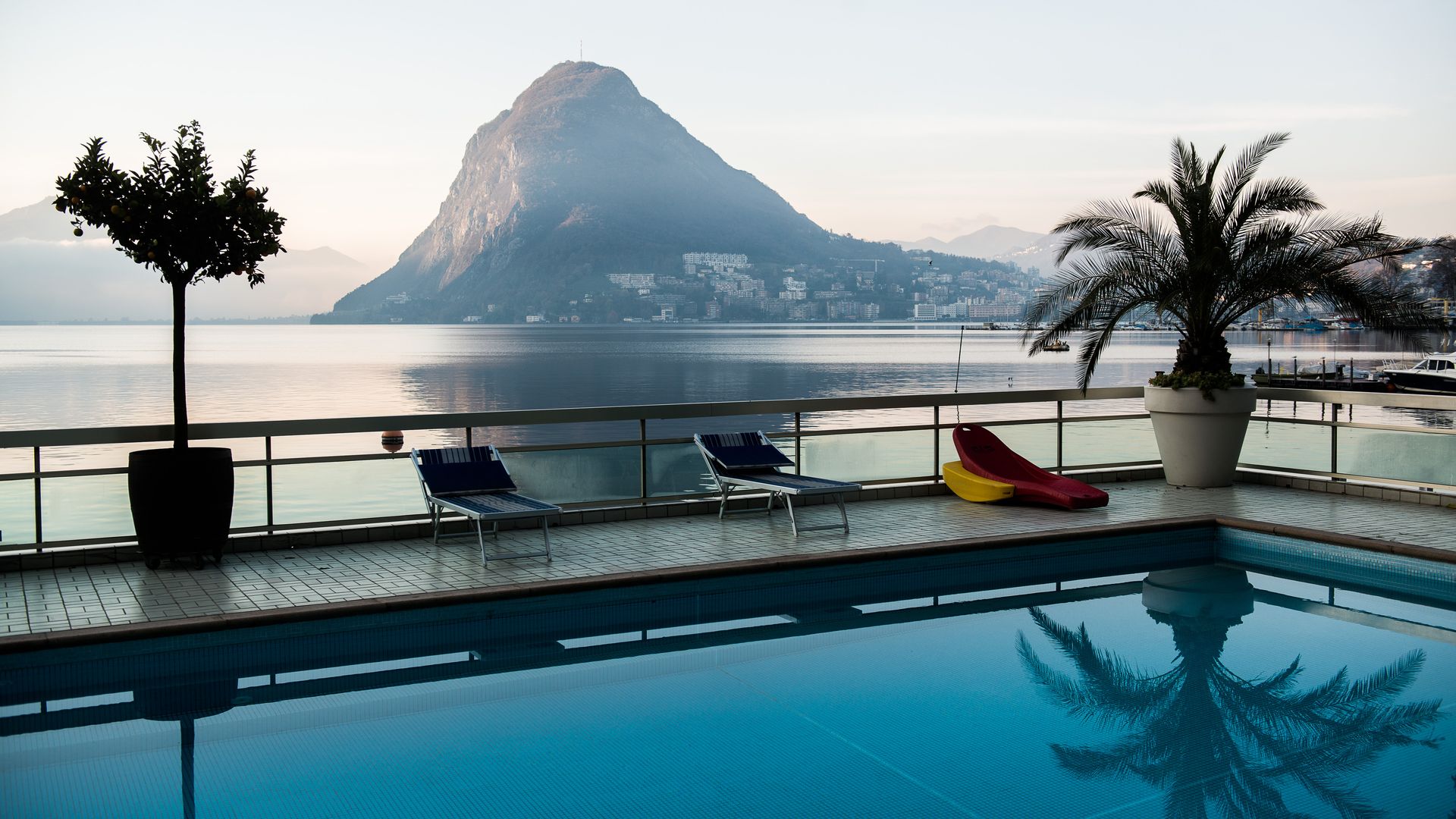 | | | Lugano, Switzerland. There are worse places to move. Photo: Akos Stiller/Bloomberg via Getty Images | | | | At least three dozen super-rich Norwegians moved to low-tax Switzerland in 2022 after the government in Olso hiked taxes, Fabienne Kinzelmann, an international correspondent for Handelszeitung and former Axios fellow writes from Zurich. Why it matters: Norway, one of the few countries that imposes a "wealth tax" on an individual's total assets, is hardly alone in struggling to balance raising revenues and addressing wealth inequality against the risk that big taxpayers might simply move away. Driving the news: Norway's second-highest taxpayer — Kjell Inge Røkke, the fisherman-turned-billionaire who controls investment company Aker — established his residence in Lugano in the sunny Italian-speaking part of the country. He explained that it is "a great place in the middle of Europe." - Real estate investor Tord Ueland Kolstad, who claims his tax bill doubled between 2020 and 2022, was more blunt as to why he moved to Lucerne. "I thought about it since the increase of the wealth tax."
- The trend has been closely followed by the Norwegian press. Just this week, Norway's E24 reported that two more wealthy entrepreneurs were moving to Lugano.
- Seeking to capitalize on the trend, a Zurich-based real estate company has advertised "unique Swiss real estate in the top segment" and "high-sky living and working" in a Norwegian newspaper.
However, there's a psychological downside to making the move, Swiss-Norwegian businessman Hans Holdener told Handelszeitung: - "If you convert your Norwegian kroner into Swiss francs, you have to divide the sum by about ten — that turns you from billionaire to millionaire in an instant."
|     | | | | | | 6. Two trends to watch in 2023 |  | | | Illustration: Aïda Amer/Axios | | | | 1. The Chinese government no longer appears as invulnerable as it did at the height of the global pandemic, and Beijing's major policy changes could alter the calculus in U.S.-China competition, Axios' Bethany Allen-Ebrahimian writes. - Facing economic headwinds at home and increasingly unified opposition abroad, Beijing appears to be softening its tone and offering some concessions to the international community.
- Meanwhile, concern is growing in the U.S. that tough-on-China policies may lead to inevitable conflict, and that some kind of course correction is needed.
- The question: Will the momentum toward ever-fiercer competition slow in 2023?
2. The ties between human-caused climate change and extreme weather events became even more obvious in 2022 — and, for the first time, played a starring role in climate diplomacy, Axios' Andrew Freedman writes. - Why it matters: The deadly, widespread flooding in Pakistan in late summer helped galvanize international support for a way to compensate poor countries for the disproportionate share of climate damage they are bearing.
- Expect more of that in 2023.
|     | | | | | | 7. Stories we're watching | 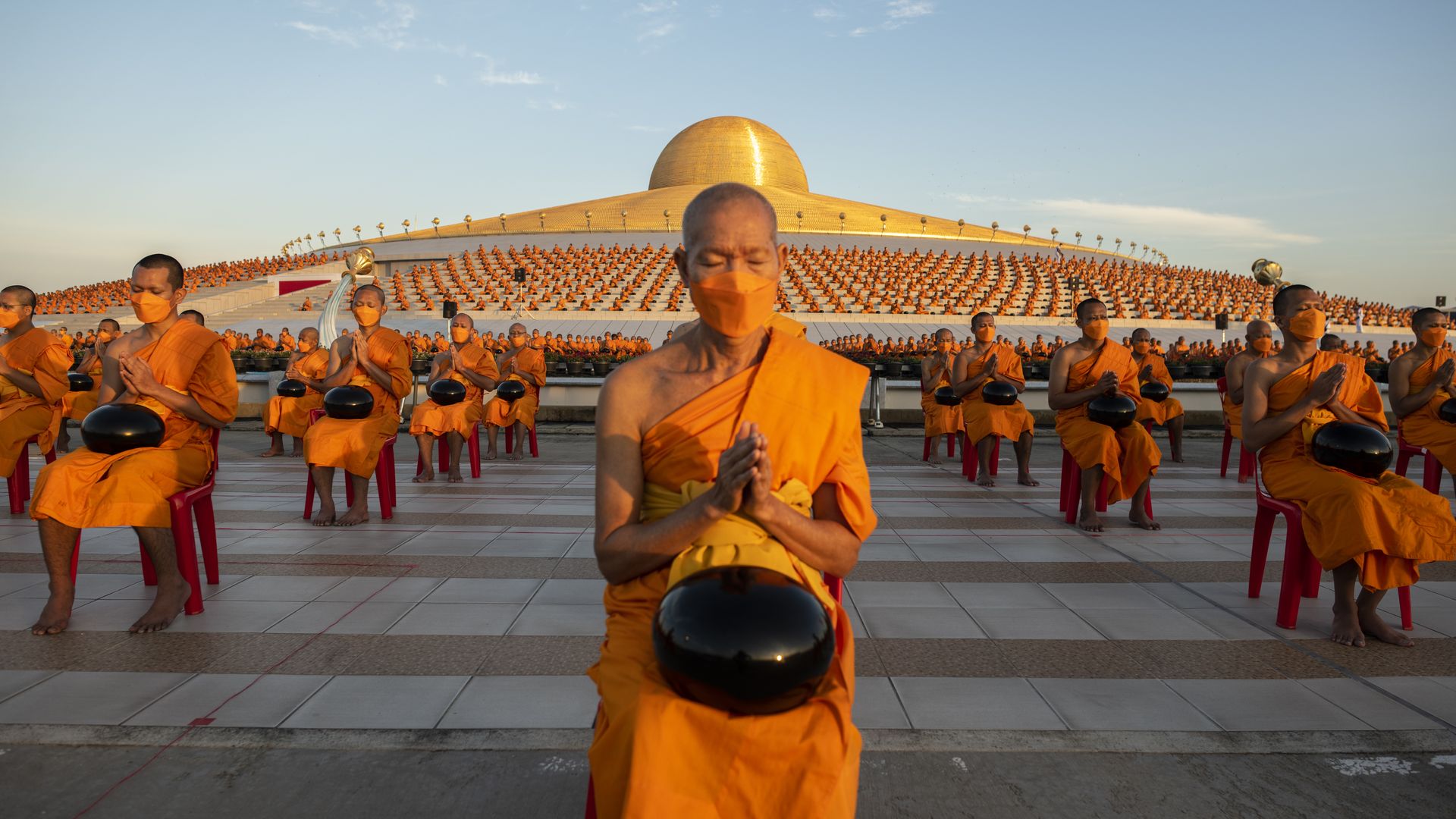 | | | Buddhist monks hold a New Year's ceremony in Bangkok. Photo: Sirachai Arunrugstichai/Getty Images | | | - Kim Jong-un calls for "exponential increase" of nuke arsenal
- Natural gas falls to pre-Ukraine war prices
- Former NATO chief in Taiwan
- Myanmar's Suu Kyi faces 33-year prison sentence
- Lebanon starts the new year without a president
- U.S. says nearly 700 ISIS operatives killed in 2022
- In photos: Funerals for Pele and Pope Benedict XVI
Quoted: "He was ready to bomb hospitals and nurseries and churches on the 25th and New Year's." — Biden on why he puts little stock in Putin's cease-fire announcement. |     | | | | | | A message from Babbel | How to make 2023 your year of adventure aventura | | | 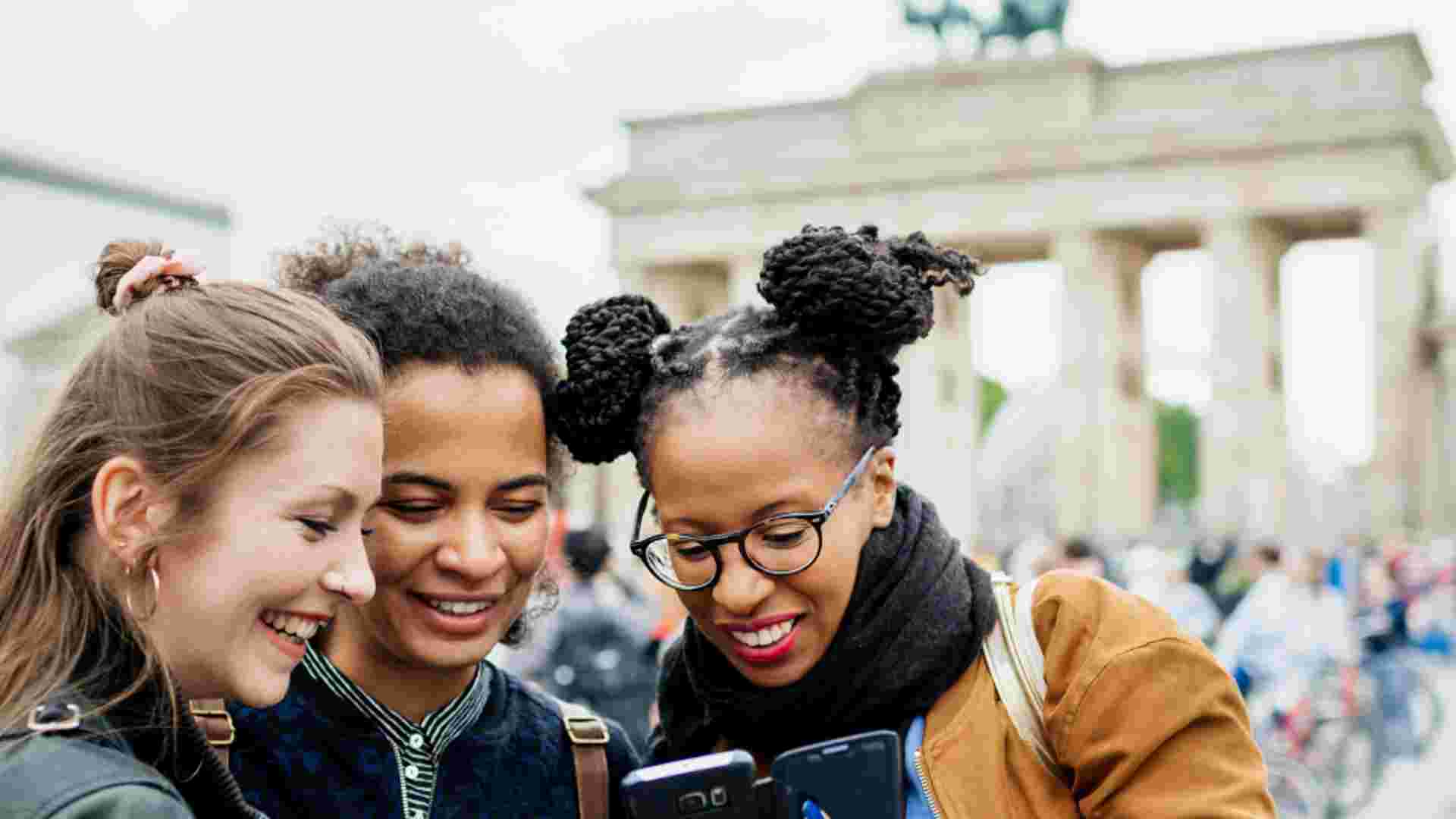 | | | | The end of the year is a great time to prepare for the journey ahead — like learning a new language for future travels. How it's done: Babbel teaches 10-minute daily language lessons for real-world use that even help improve your pronunciation and accent. Learn French or Italian in just 3 weeks. | | | | Answers: 1. Argentina; 2. Lula; 3. Bad Bunny; 4. Coda; 5. Giorgia Meloni; 6. Norway; 7. William Ruto; 8. Annie Ernaux; 9. Finland; 10. Guyana. Questions: - This country won the World Cup.
- This former president won a return to power in Brazil
- This Puerto Rican rapper was Spotify's most-streamed artist for the third year in a row.
- This English-language remake of the French film "La Famille Bélier" won the Best Picture Oscar.
- She became Italy's first female prime minister.
- This country won the most golds and total medals at the 2022 Winter Olympics.
- This former VP was elected president in Kenya.
- This French writer won the Nobel Prize for literature.
- This country was the happiest in the world, according to an annual UN report.
- This small country in the Americas, one of the world's newest oil producers, recorded the highest estimated GDP growth rate in the world.
|  | | Are you a fan of this email format? Your essential communications — to staff, clients and other stakeholders — can have the same style. Axios HQ, a powerful platform, will help you do it. | | | | | | Axios thanks our partners for supporting our newsletters.
Sponsorship has no influence on editorial content. Axios, 3100 Clarendon Blvd, Arlington VA 22201 | | | You received this email because you signed up for newsletters from Axios.
To stop receiving this newsletter, unsubscribe or manage your email preferences. | | | Was this email forwarded to you?
Sign up now to get Axios in your inbox. | | | | Follow Axios on social media:    | | | | | |












No comments:
Post a Comment